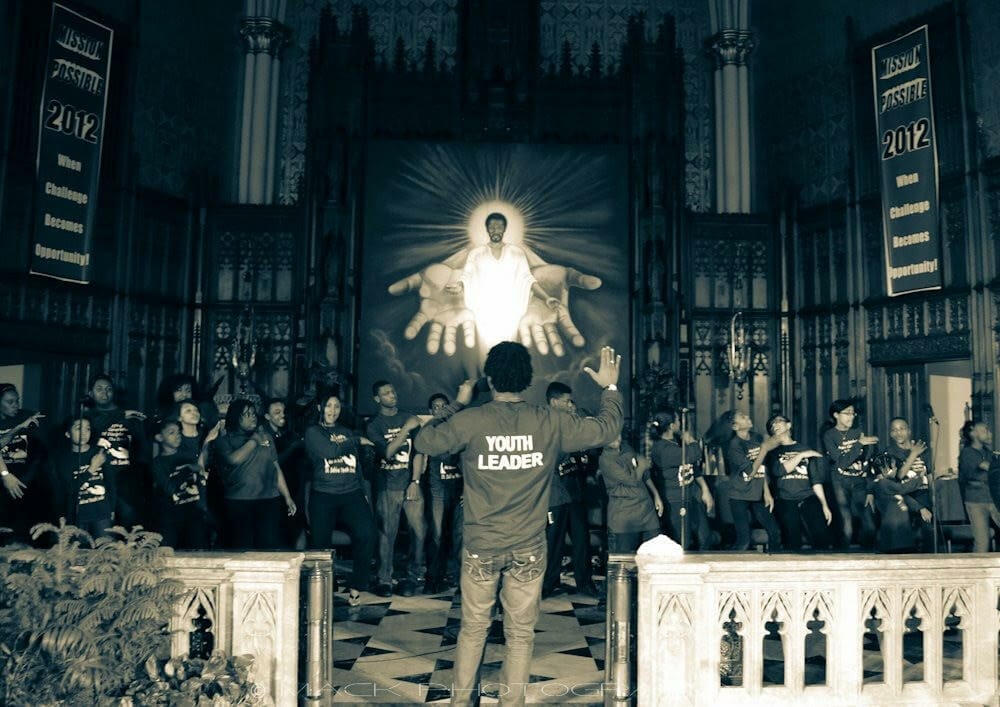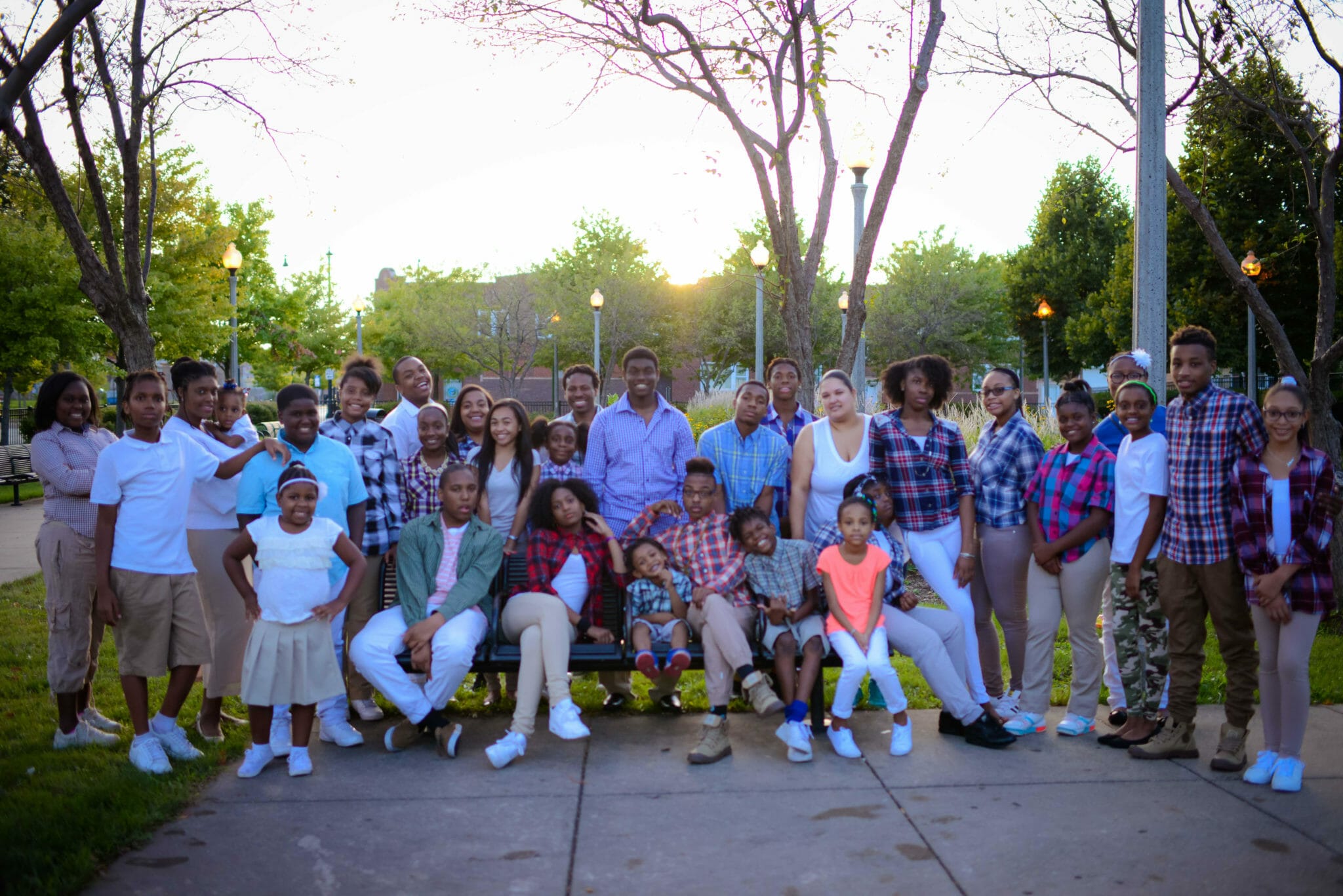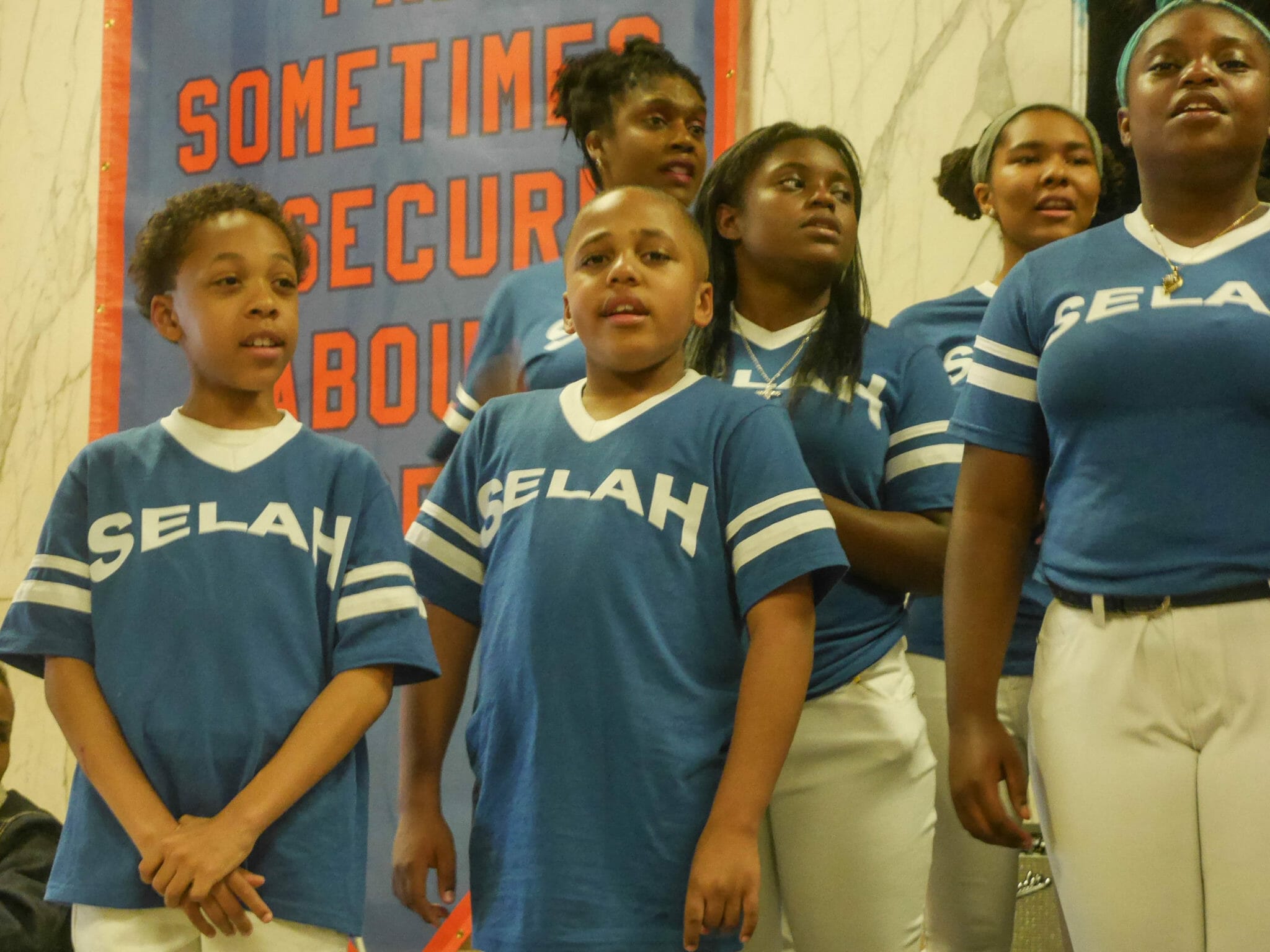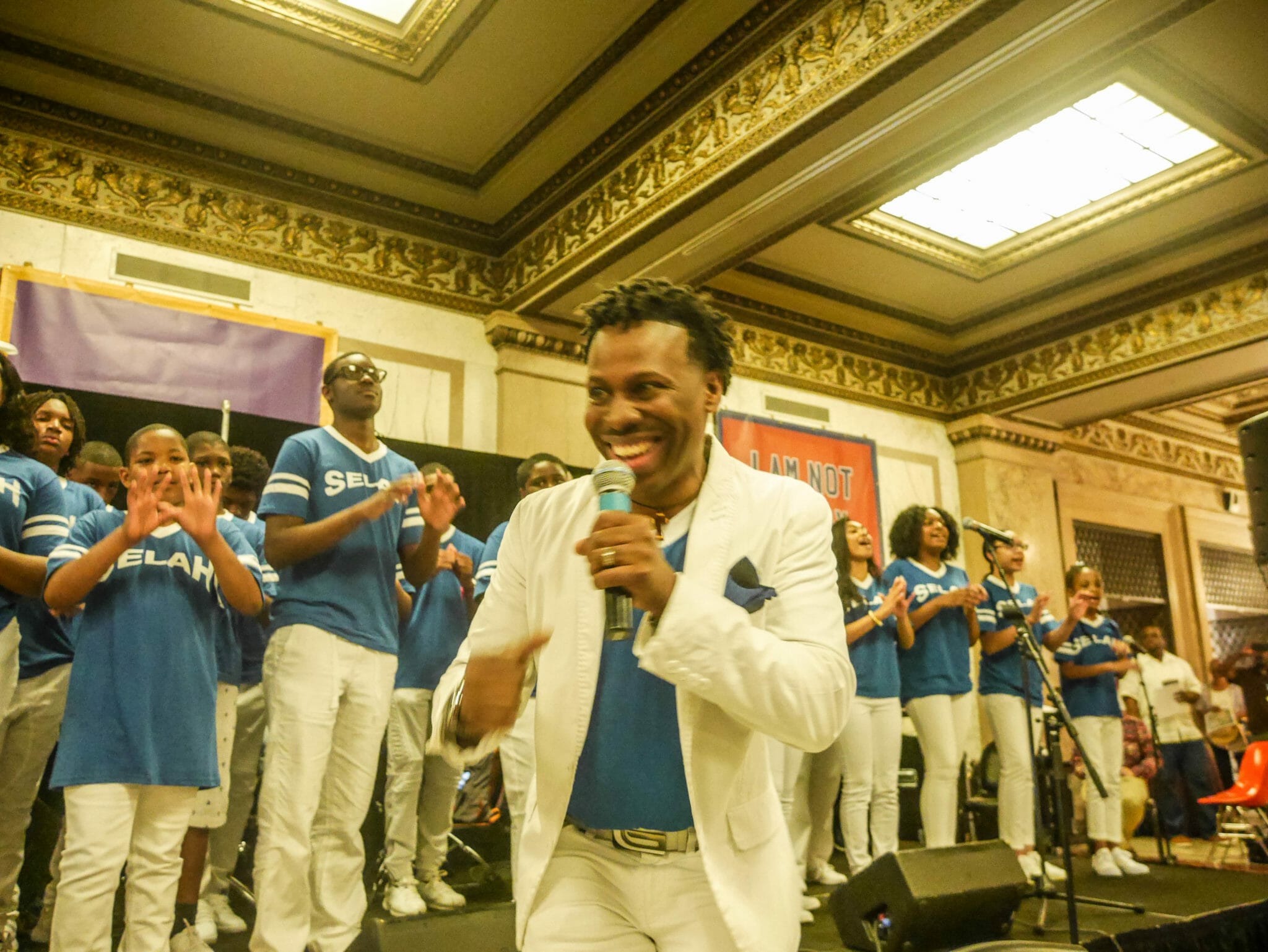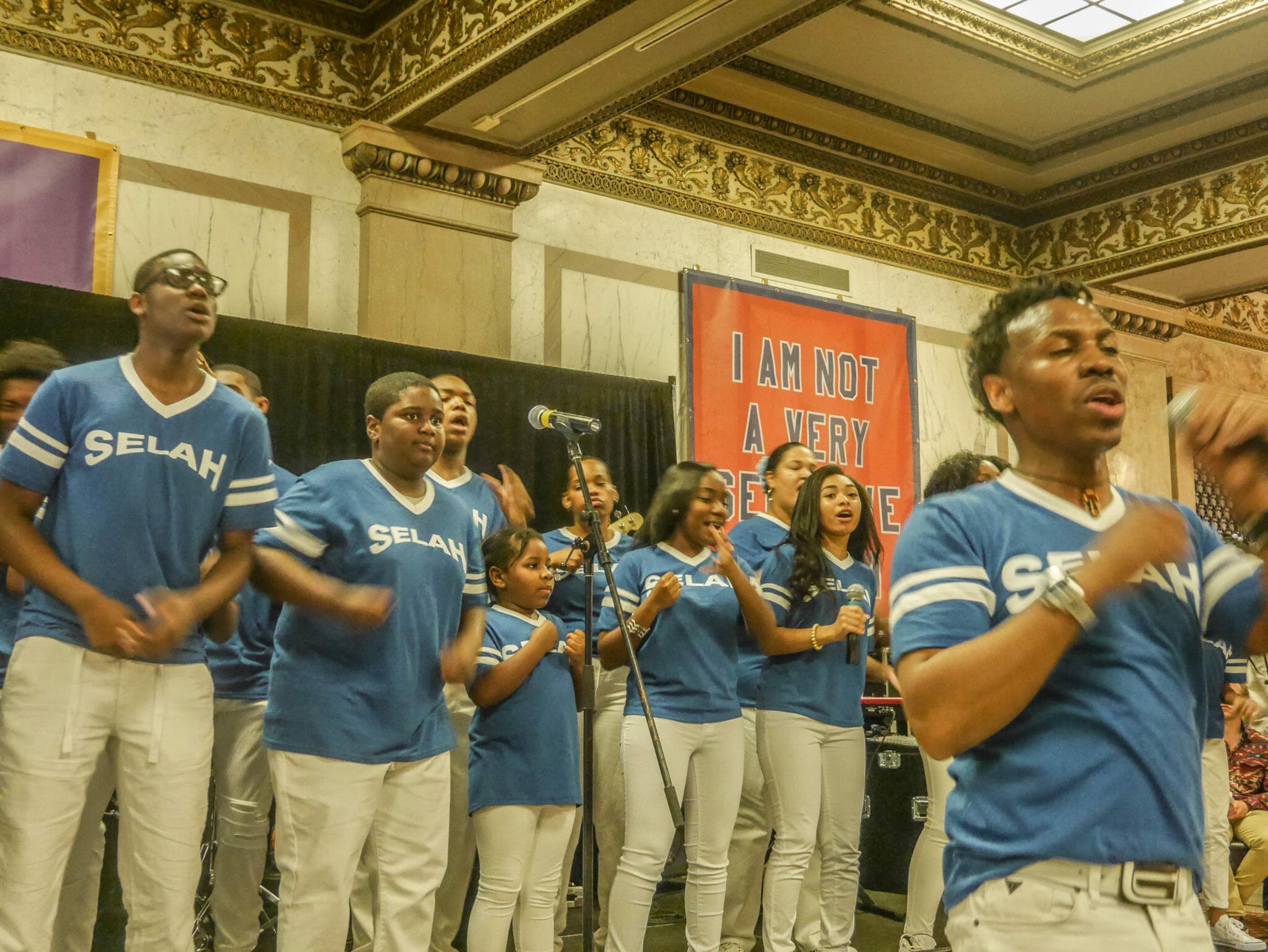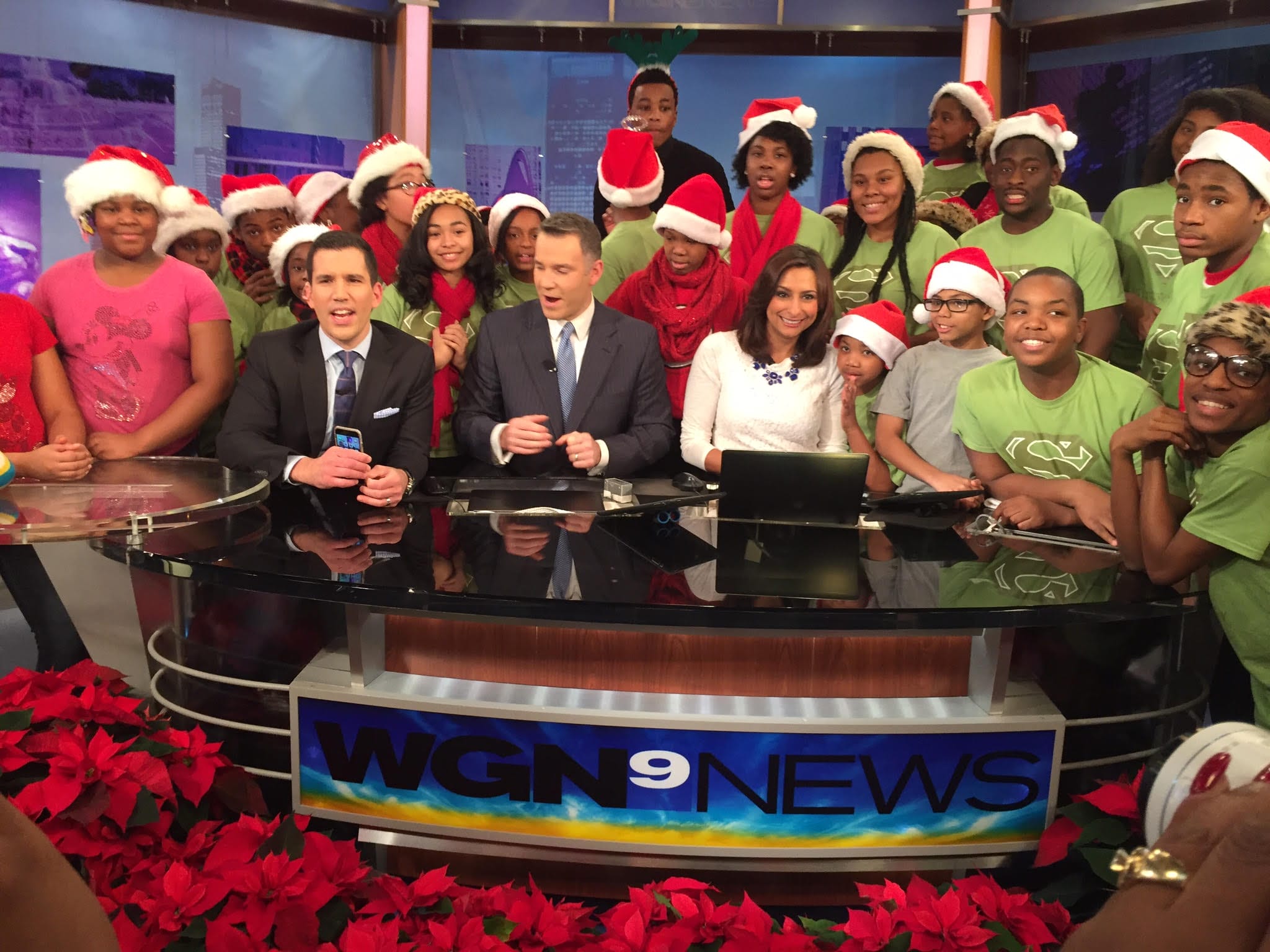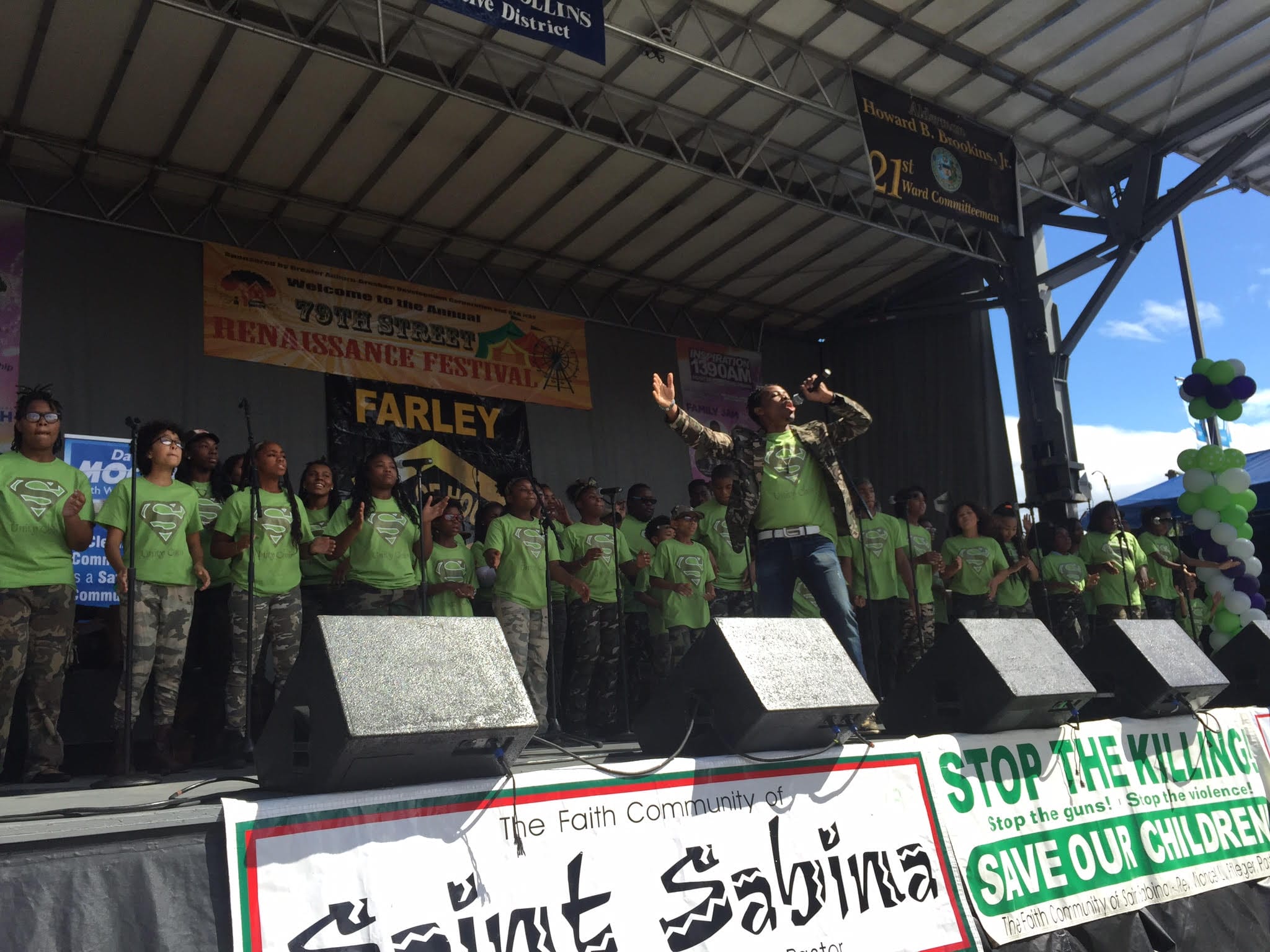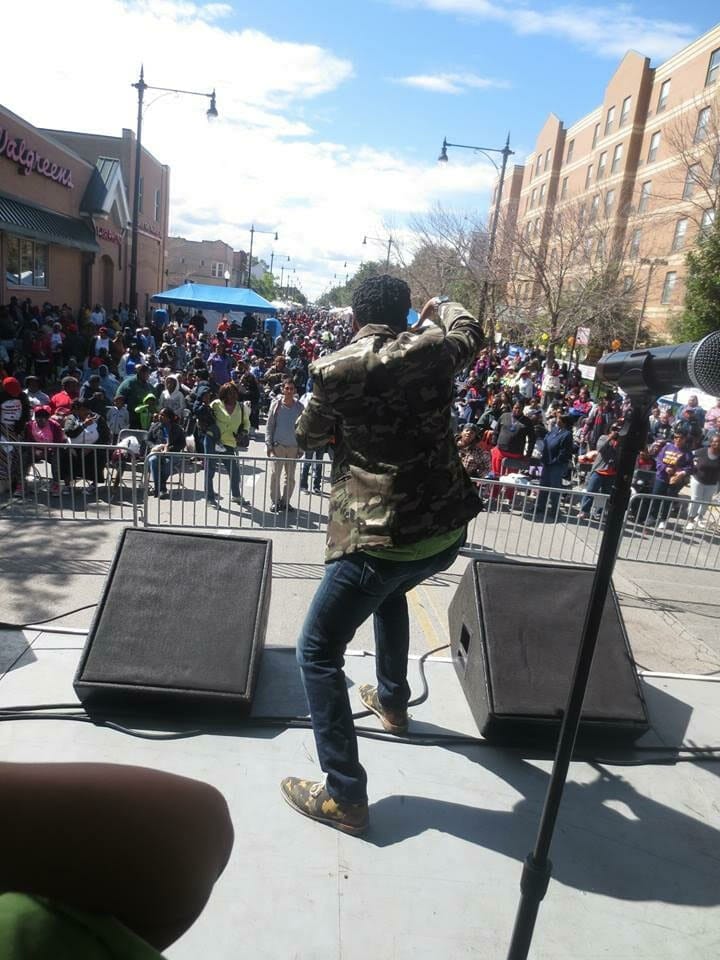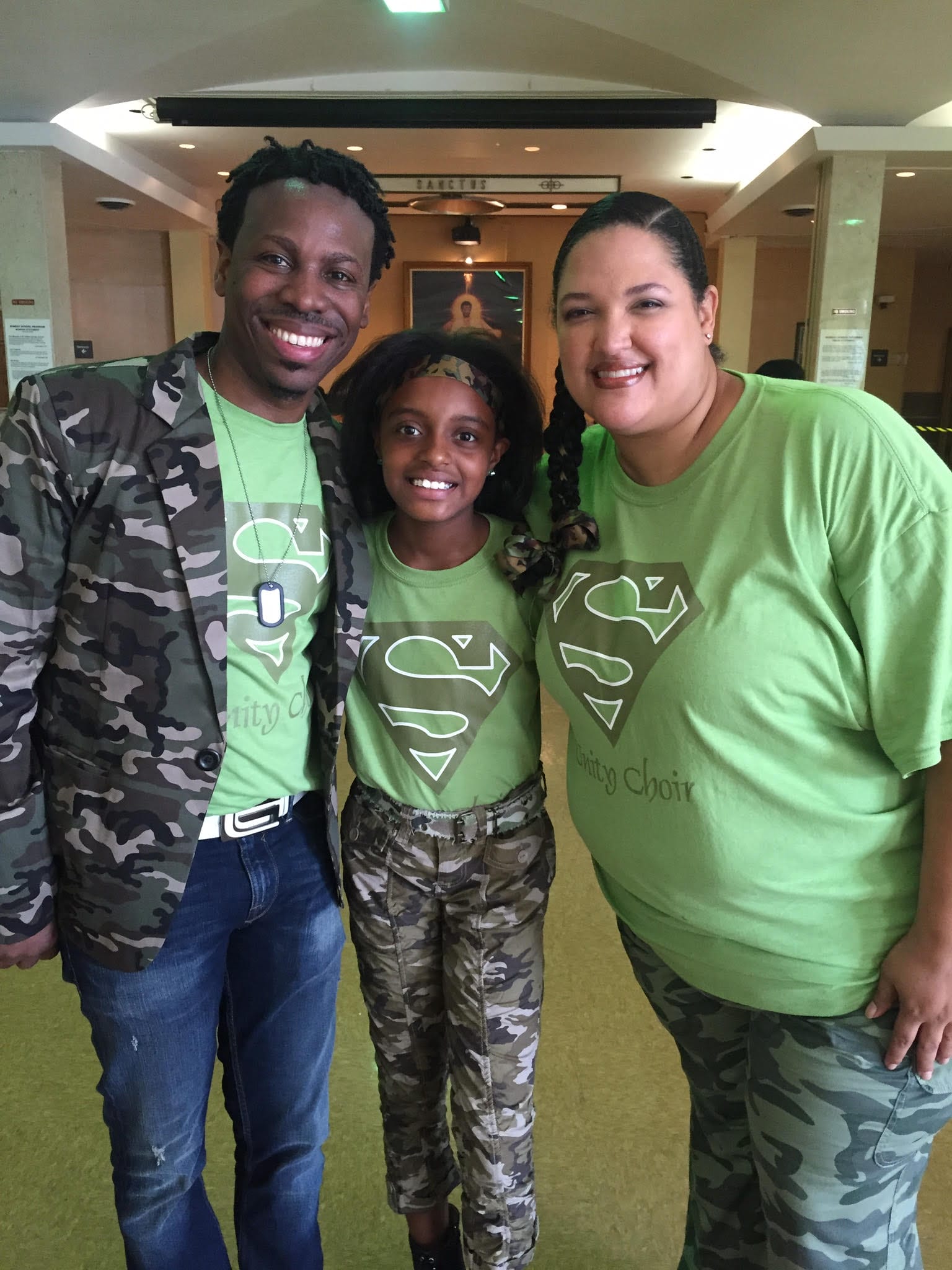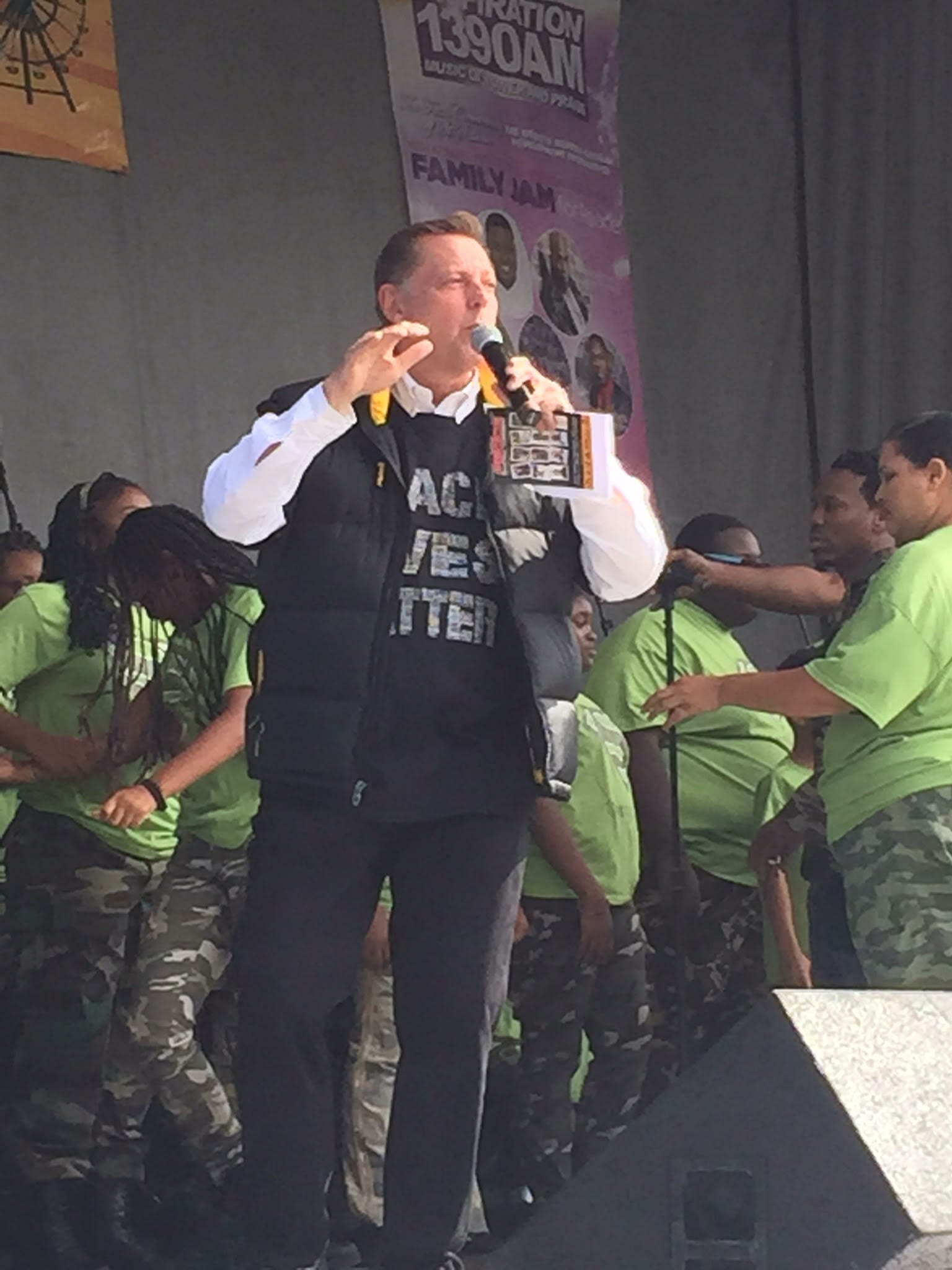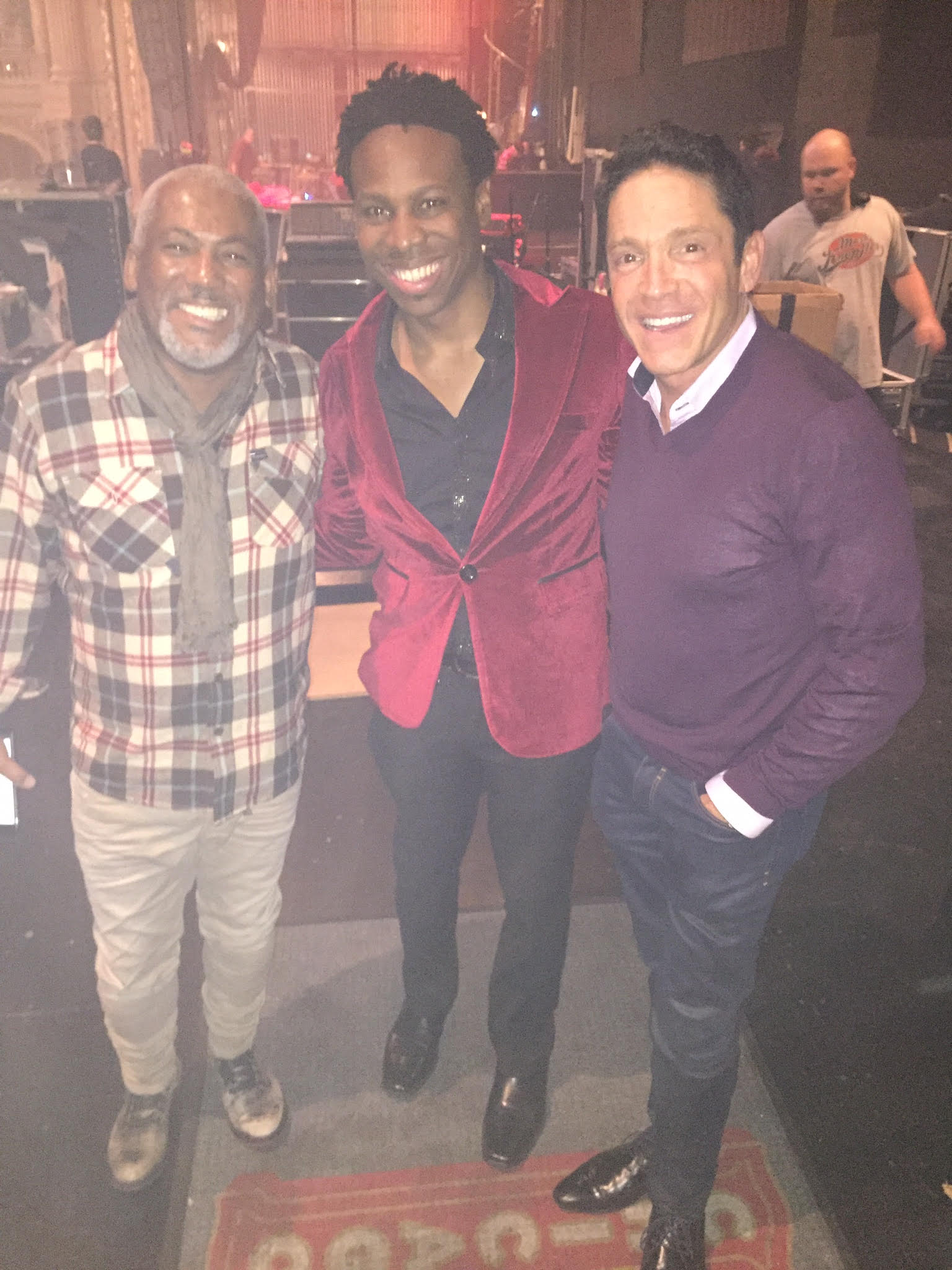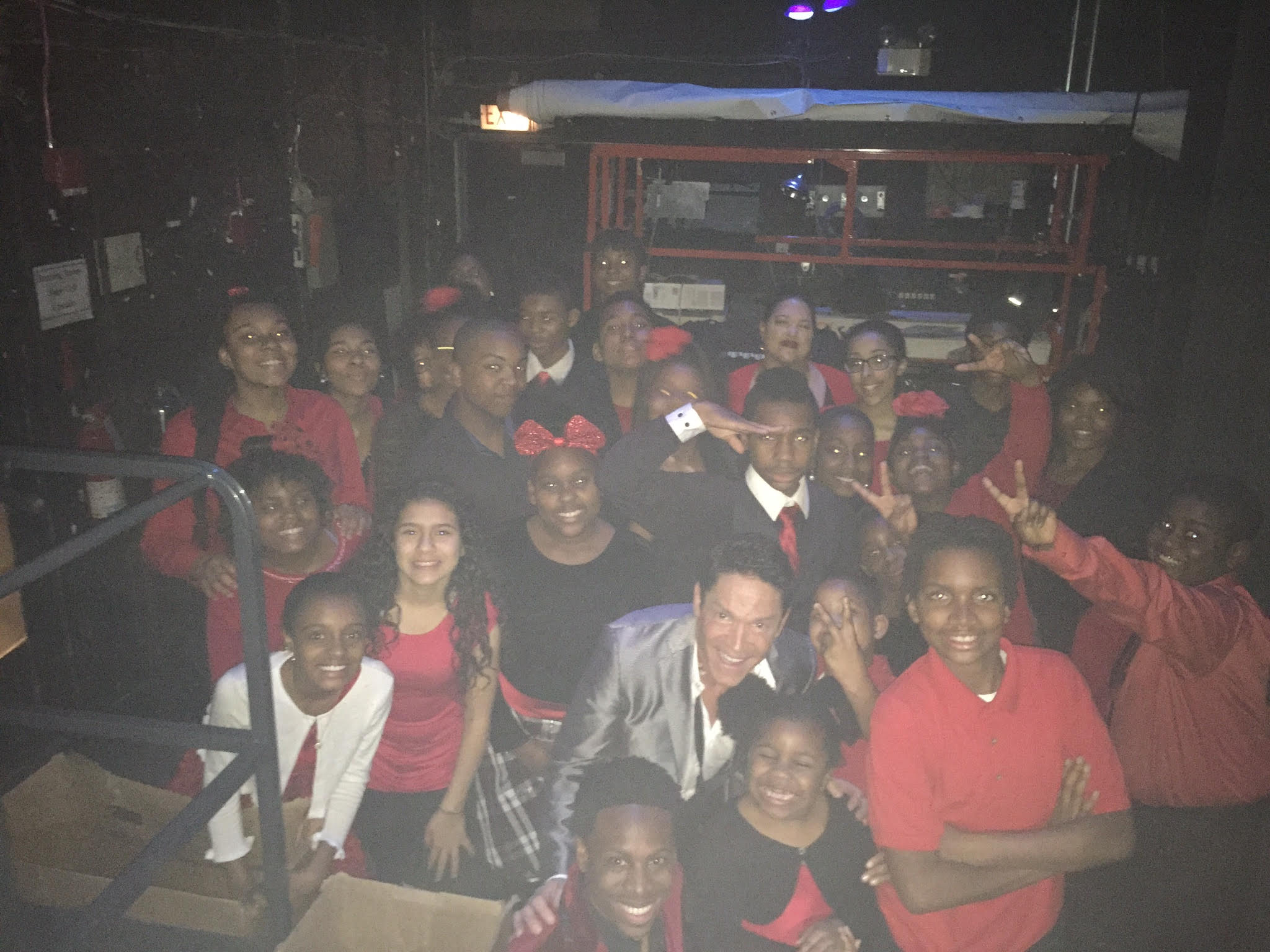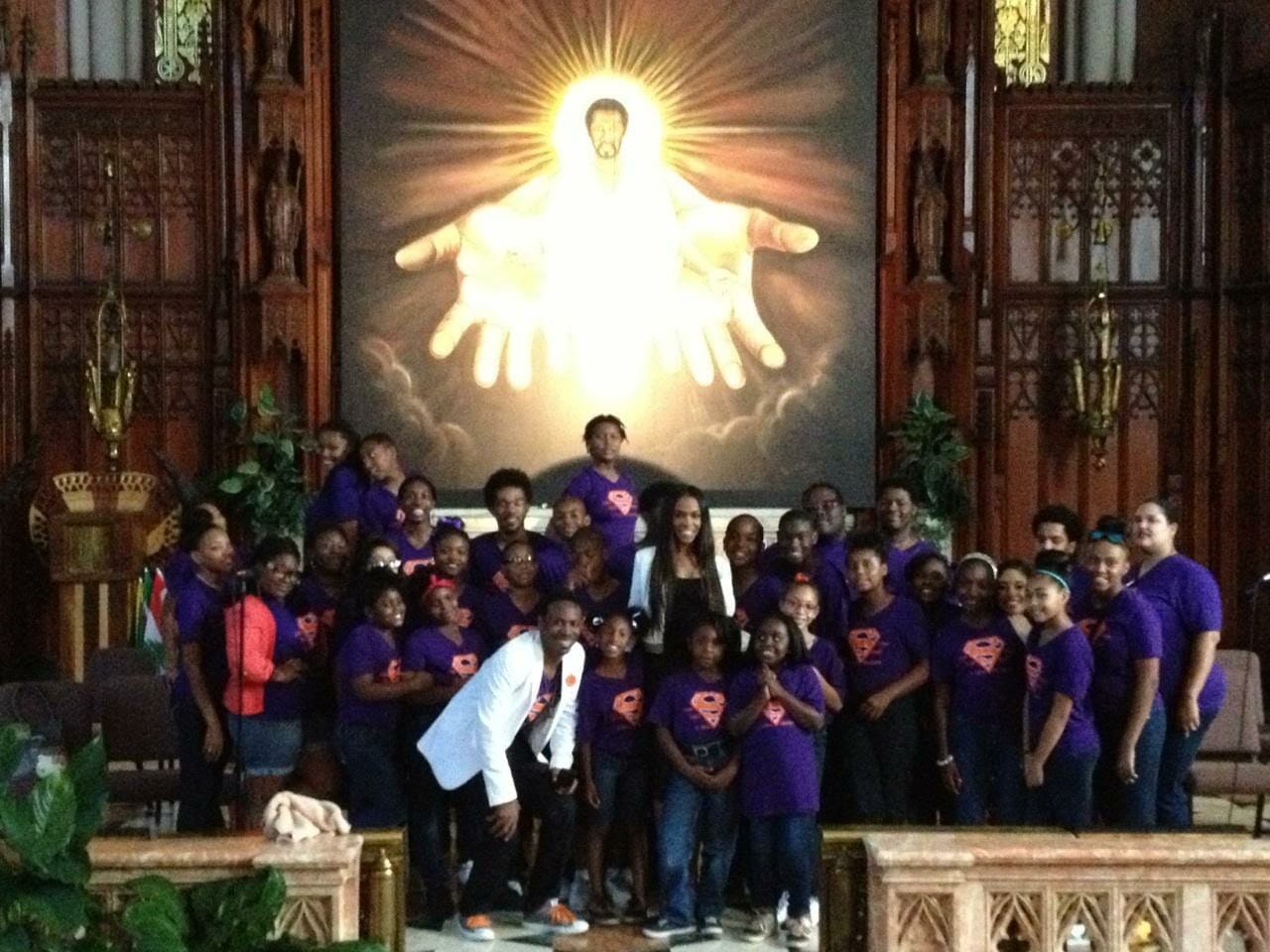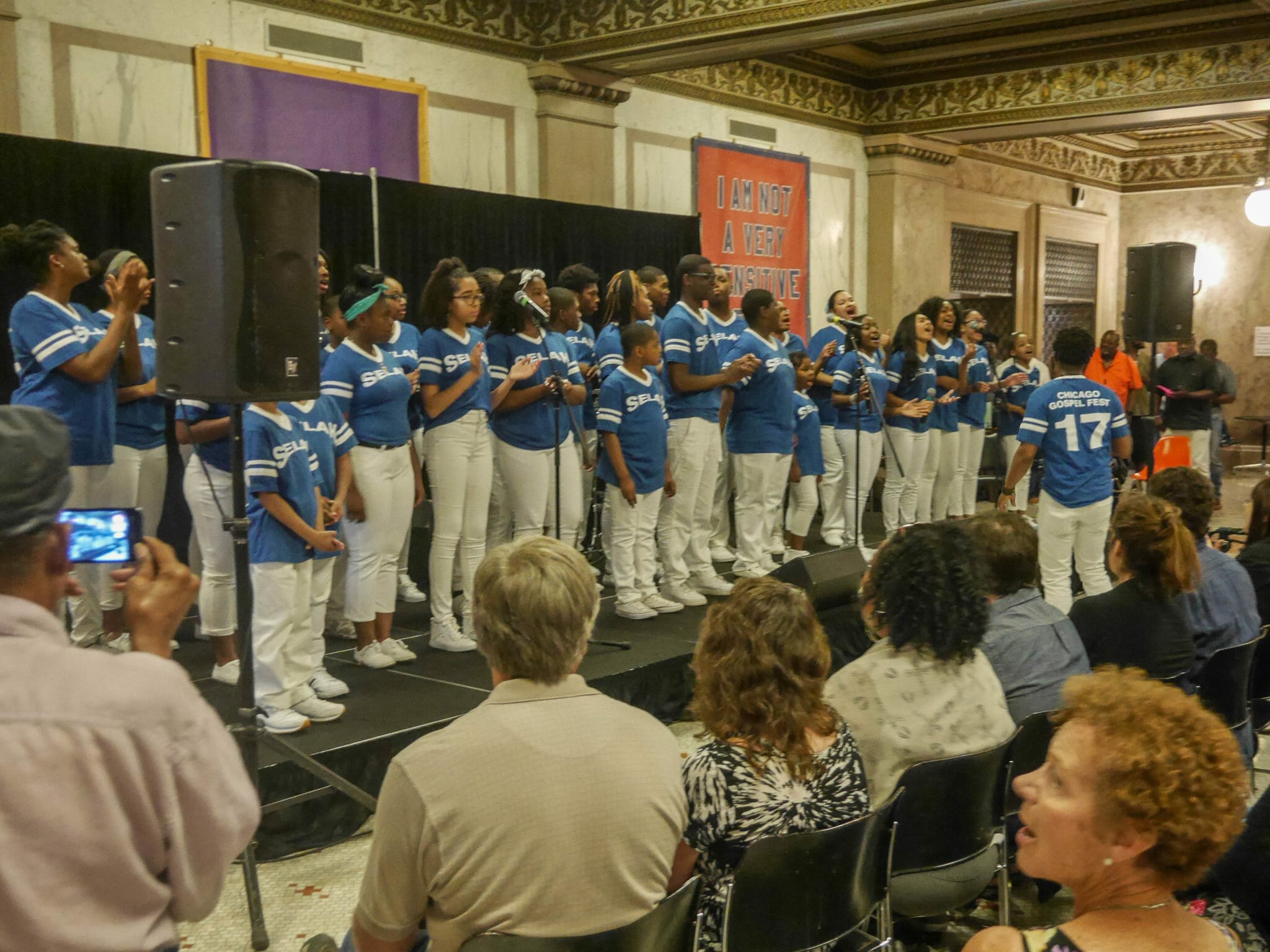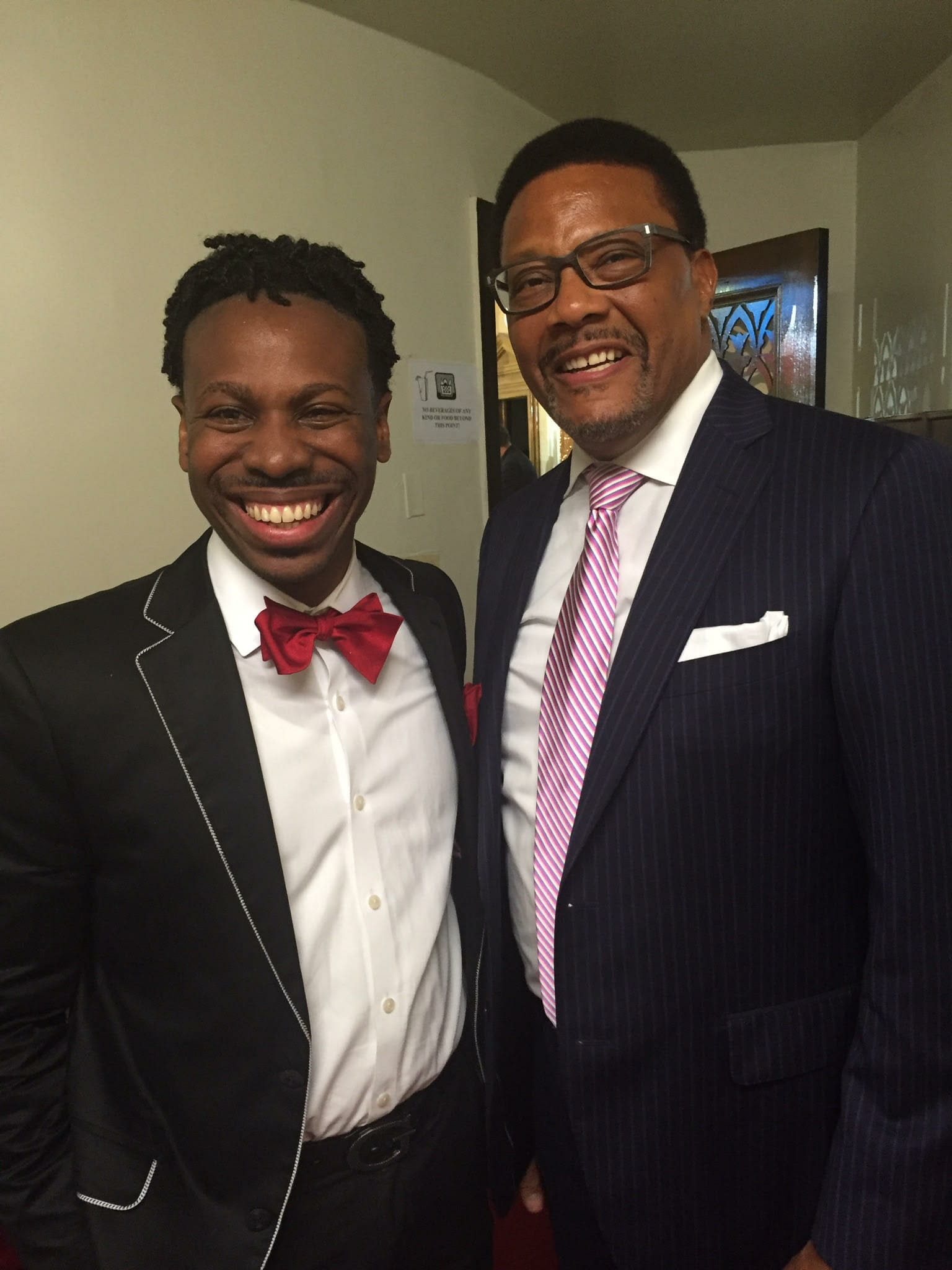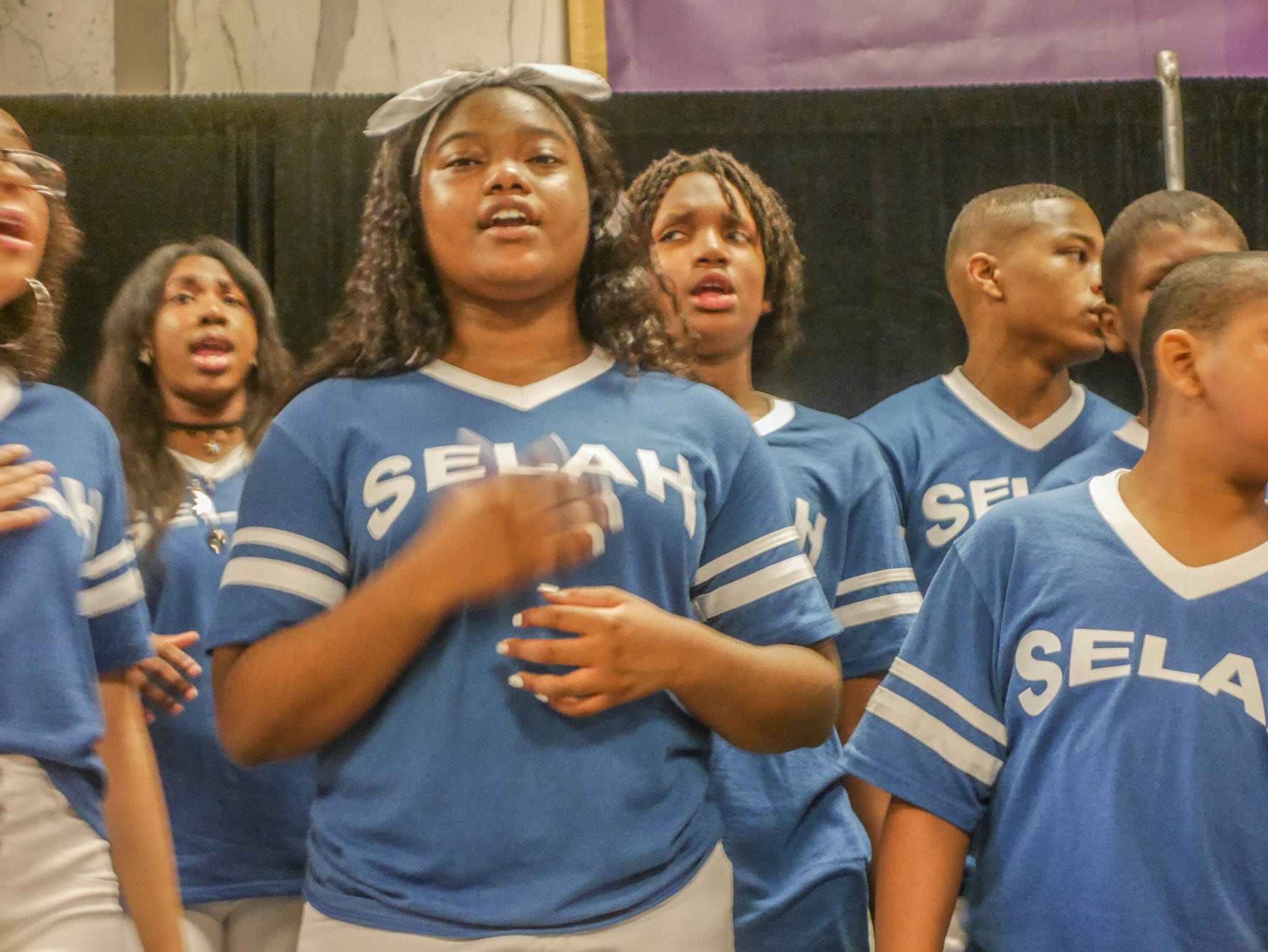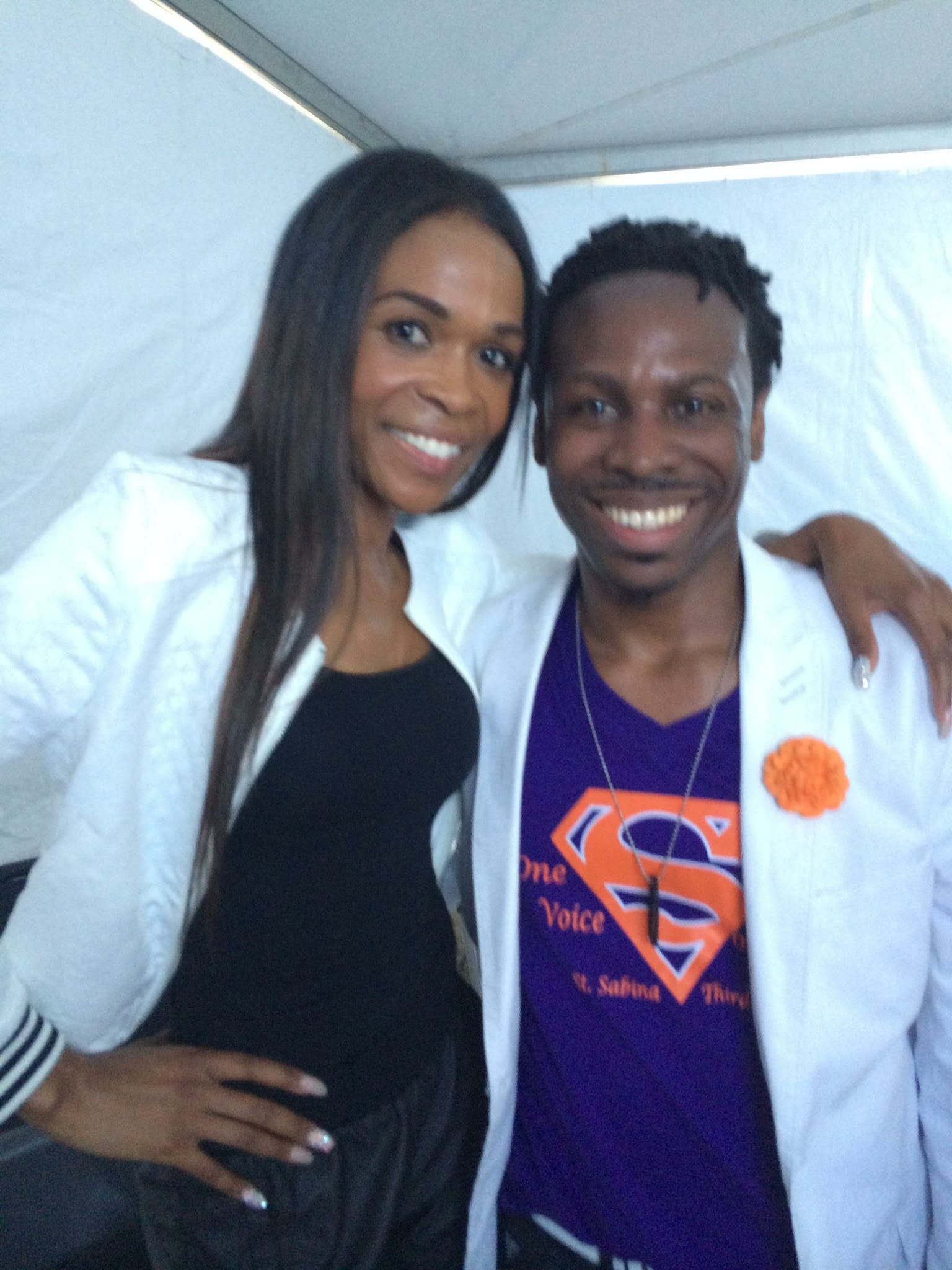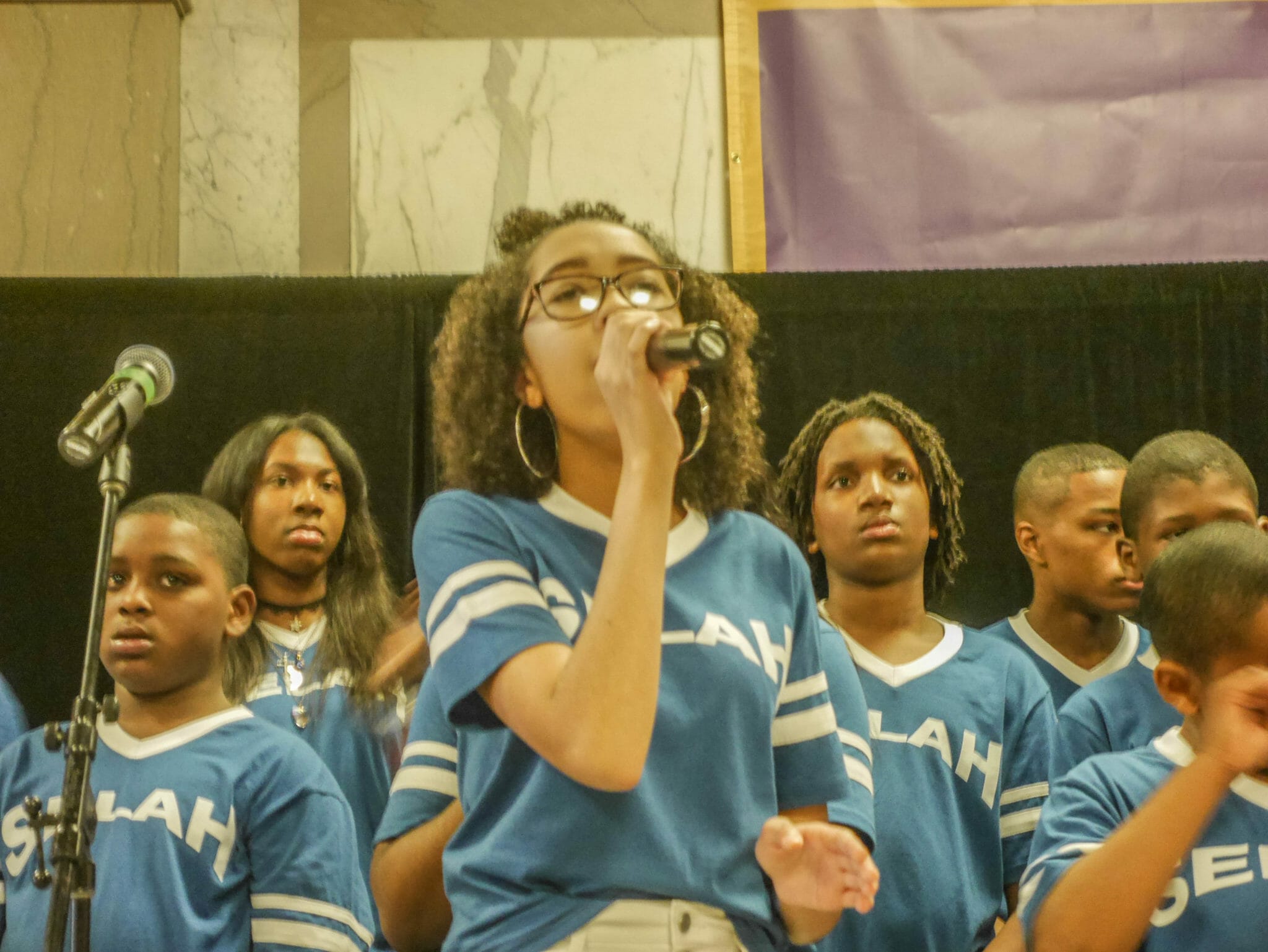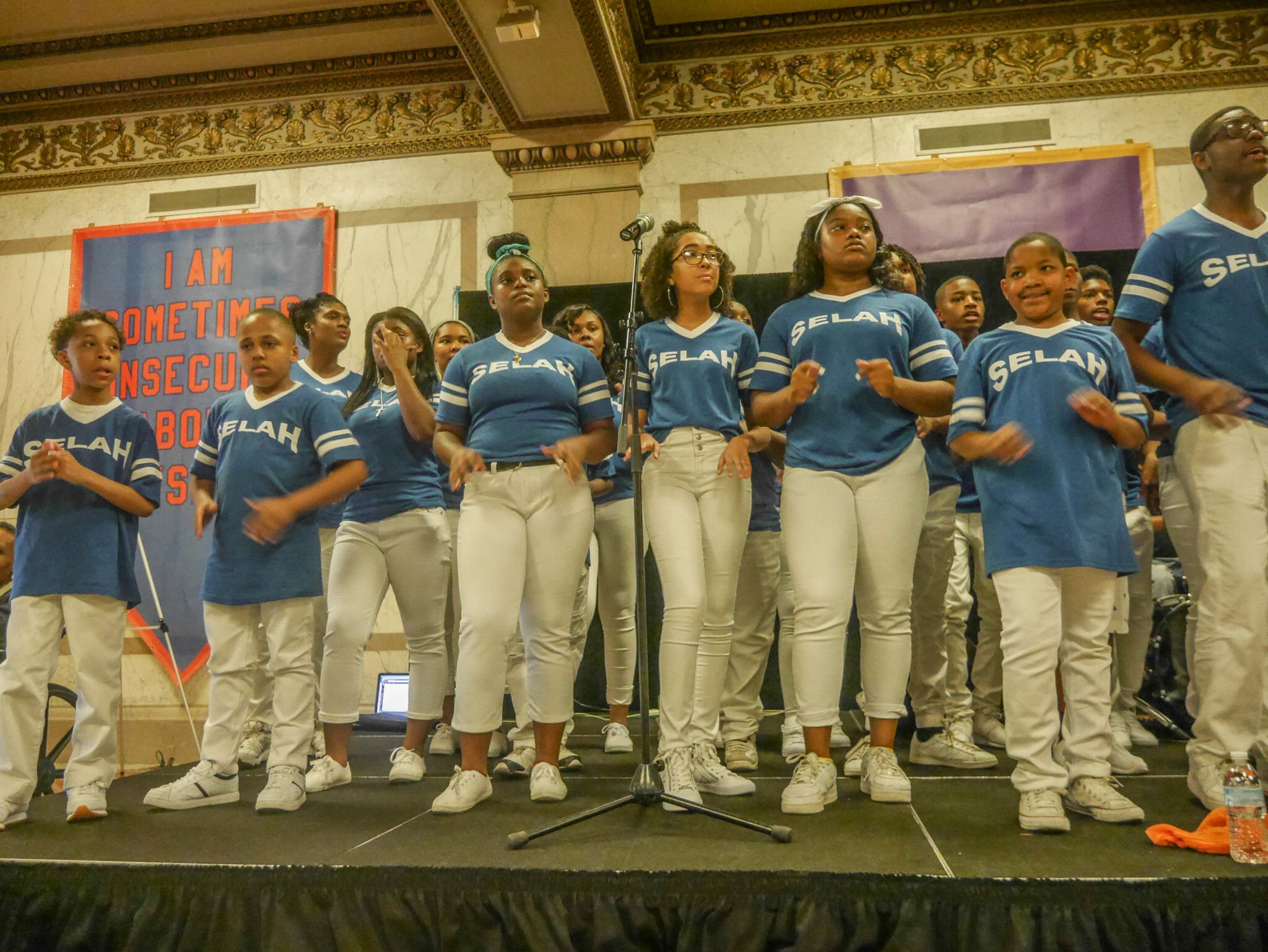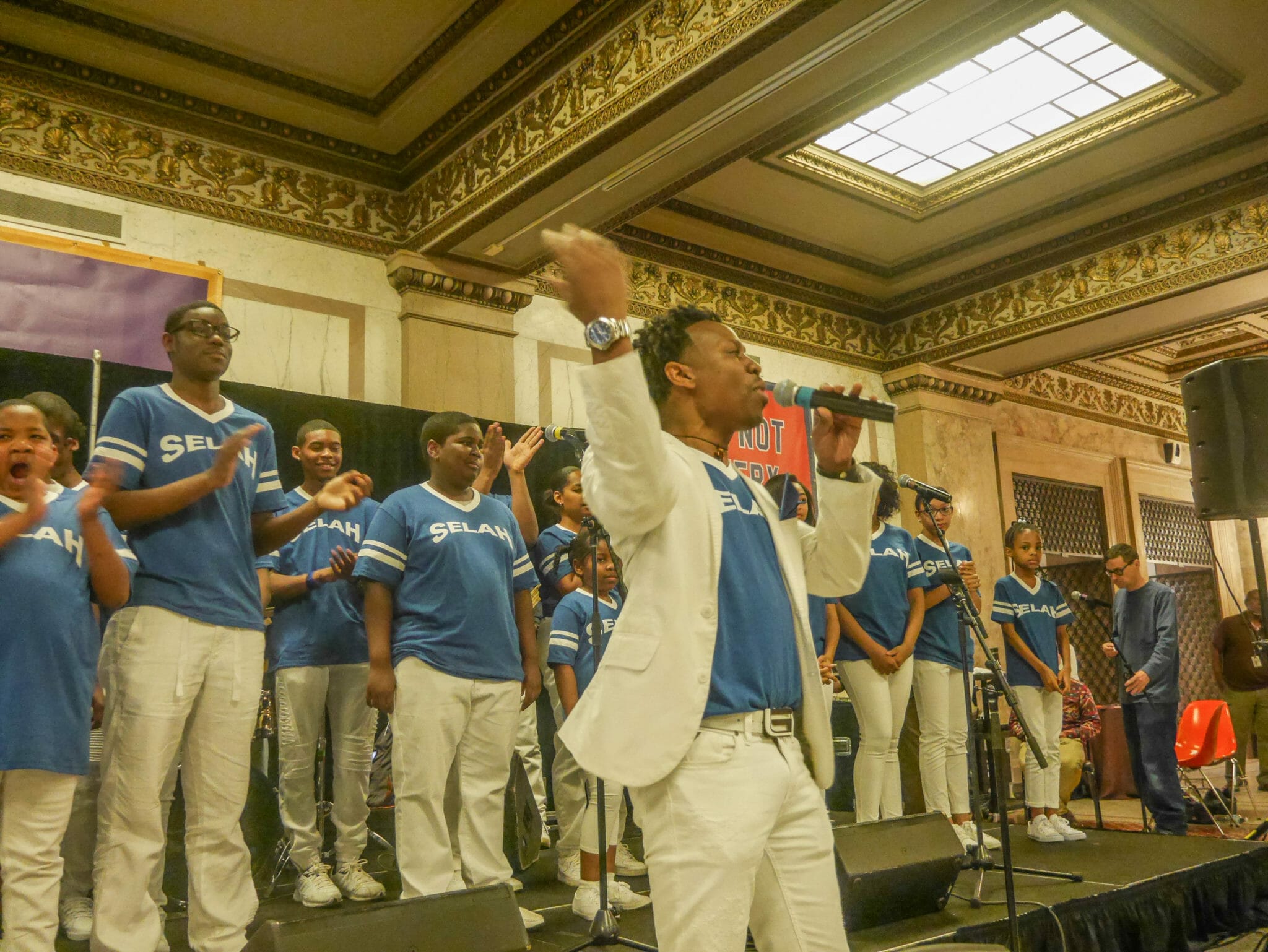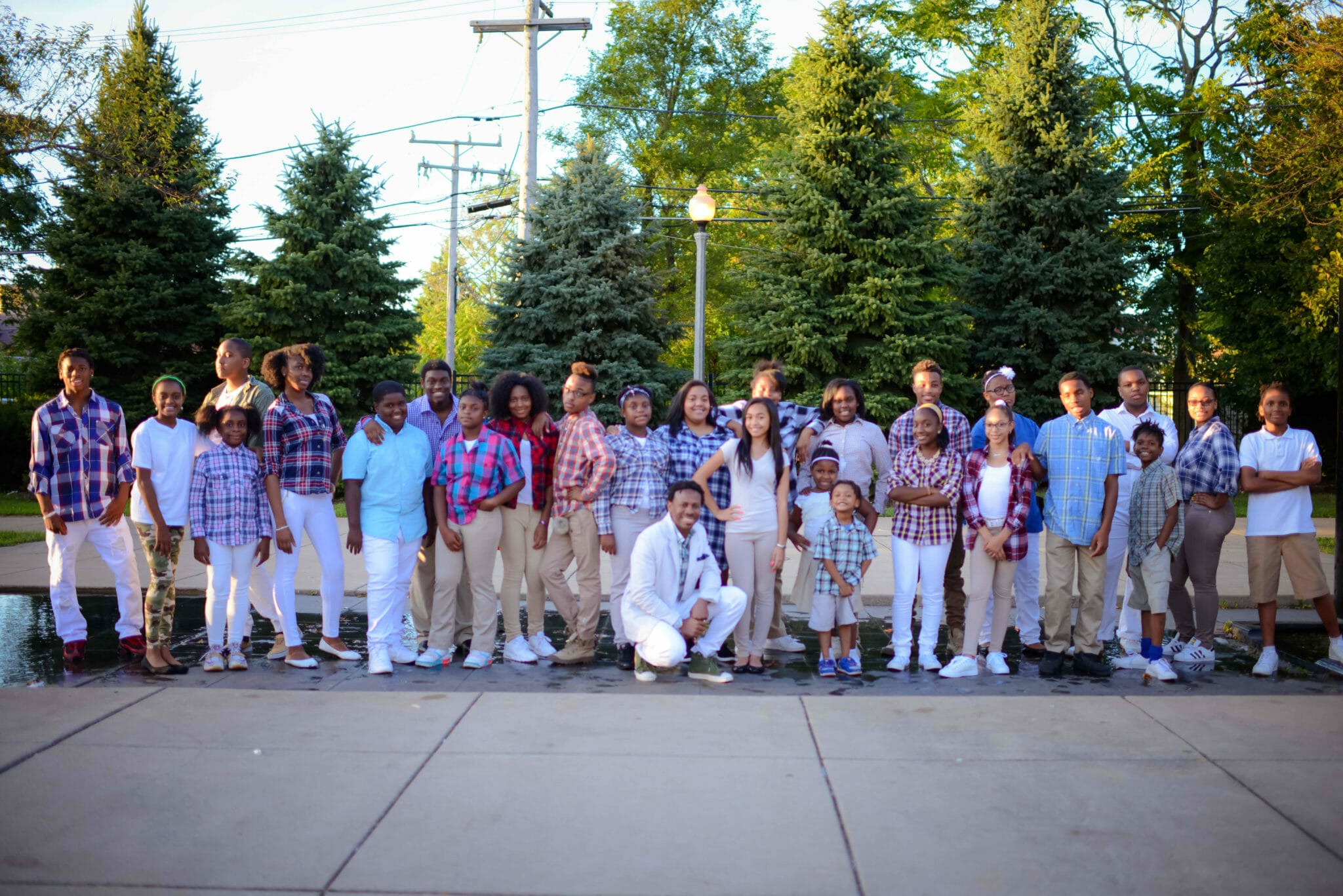Meet Selah St. Sabina Youth Choir
Editor’s note: ahead of the Chicago Gospel Music Festival on June 2nd and 3rd, Picture This Post interviewed some of the groups to get to know the singers and choirs performing. Next is the Selah St. Sabina Youth Choir, directed by Sam Williams, who performed on Friday, June 2, from 12:40-1:00. This interview was conducted with Sam Williams, and has been slightly condensed.
MORE: read other profiles of gospel performers, including Glenn Johnson and the Voices of Innerpeace, God's Posse, The University of Illinois Black Chorus, Isaiah Freeman, R&R, and Neicy Robertson.
Read more from St. Sabina's Pastor Pleger and his comments on the Chicago Gospel Festival.
PTP: What is the youth choir, what is its age range and how many kids are in it?
SW: It's six to eighteen. I think I have a couple of six-year-olds. I got a couple of kids who are graduating this year, too. So it’s about 42 kids. I have a youth band, too, that we work with – and they can really play.”
PTP: When did you start conducting gospel music? How old were you? How did it come about?
SW: I came up with the Walt Whitman’s Soul Children of Chicago. I joined them when I was about 12 years old. So Soul Children of Chicago, of course, are traveling all over the world, and have several recordings. So as I got older, I went away for school – went to college at SIU. But then I came back and went to school here at Chicago State. And I came back to Soul Children as an assistant conductor, and went and helped Walt Whitman. So even while I was away at school I picked up directing, just being with the Soul Children. And the experience of traveling and recording.
I actually got the singing from my Mom, cause she was singing in my church’s choir. Actually she’s singing now, over at St. Sabina.
PTP: Where were you born and where did you grow up? How did music figure into your upbringing?
SW: Grew up in Chicago – actually grew up in Englewood, on the south side. Then we moved out of Englewood when I was seven and moved farther south to Jefferson.
I learned music through church. I’m Catholic, grew up Catholic, baptized Catholic. With Catholicism, the emphasis really isn’t on singing in masses; it's more so congregational singing, not so choir-based or musician-based. But then, suddenly, this group, Soul Children of Chicago, was on TV. My mom goes, “you wanna go see this youth choir?” And I have a twin sister, and she was probably more interested than I was. And we went to the audition, my sister went up and the director thought it was alright. Then they asked if I wanted to audition. I was a bit reluctant, but I went up and they liked me enough to ask me to join the choir. So it was odd that my twin sister, who really wanted it, didn’t get it and I, who didn’t really want it, got in.
And from that point on it was kind of weird to me to be in a rehearsal with all these other kids, cause it was about a good 70 kids. And to be in that world was odd cause these kids knew how to sing. I was a bit intimidated. And I’m just trying to get my feet wet… He was one of those directors that wanted everyone to be professional – not just singing, but a major emphasis on being professional, acting as a unit. You wanted it to be like a show choir from Glee, with all the passion and power in the vocals.
To this day that’s what’s always resonated with me. And I’ve taken all of what I’ve learned, all those experiences, and brought it to the group that I now have. When I started at St. Sabina, over 15 years ago, I probably started with, like, four kids. And like I said, Catholic churches aren’t really known for music that way, as professional type. And for me to suddenly have all these kids that came out of nowhere... It’s almost like that saying “if you build it they will come.” We struggled with numbers at first, but the more we were out in front of people parents wanted kids to join, and then kids told their parents they wanted to join, which is where were at now.
PTP: Do you have any kids who have been there the whole way?
SW: The ones who were there at the very beginning – they’re grown, they’re adults now. But I do have one in particular, her name is Sophia. I originally set the age range from seven to eighteen, but she was the first that I let in the choir when she was six. She had a very soft voice, but it was very angelic, and she knew how to sing on pitch. She is graduating this year – this is her last year in the choir. She’s also in the Chicago Children’s Choir.
The Chicago Children’s Choir, Walt Whitman, they’ve been around for years. We would do events where it was almost like rival choirs. You had the Soul Children of Chicago, who knew how to do gospel, how to be loud and professional. And then you had the Children’s Choir who were proper, their tone and their pitch were very on-point, they knew how to sing classical. And though both choirs had their extremes and differences, they’re both very good at what they do.
Sophia joined the Chicago Children’s choir while also still a part of Selah St. Sabina, so she was almost getting the best of both worlds. And I could hear her potential. I would give her solos even before she joined the Children’s Choir. Once she joined their choir, along with being with us, then she really took off. Spike Lee was actually at our church, filming Chi-Raq. He would come to St. Sabina every Sunday… and one of these times was Youth Sundays, where the kids run the whole service. I gave Sophia a song, and the crowd was so into it. And at the end of the service Spike literally made a beeline up to the choir stand, and he asked her to be a part of Chi-Raq. And so she has a song in the Chi-Raq soundtrack.
So we’ve done other things. We had a collaboration with the Chicago Symphony Orchestra and she’s gone on to sing background for Chance the Rapper at one of his gigs. She’s really took off. I can tell you that I’ve been blessed to have some kids that really have talent.
PTP: What have been other milestones in your career, in the history of the choir?
SW: We were asked to sing and collaborate with the Chicago Symphony Orchestra. We worked with another church, with their youth choir, and performed a concert with some members of the Chicago Symphony Orchestra. We did that for about 3-4 years. And we did a concert annually with that church and with the Chicago Symphony Orchestra.
From that we used this event called the Peace Jam which is now at the Renaissance Festival. It's this huge free outdoor concert that we do at St. Sabina where we’re out on 79th street in conjunction with Clear Channel, WGCI, and they sing on the main stage.
And we’ve also sung with a few artists. We got in contact to sing for WGN, for Jennifer Hudson, at their Christmas show. And it's ironic because the contact was through Walt Whitman’s Soul Children, because they used to do it every year. So one year they didn’t want to do it, for whatever reason, and they asked another choir for a year, and then we did it. This year even she came up on stage with us and sang with us. I thought it was a parent, but no, it was Jennifer Hudson.
And from that we got in contact with Michelle Williams, formerly with Destiny’s Child. And she was promoting her new album at the time and they wanted a children’s choir, so we sang backup to her.
From that we got another call from Dave Koz, the jazz artist, with Jonathon Butler, who was on tour, and they asked us to sing at the Chicago Theatre on their show. There’s actually a funny story with this... They wanted us to perform a piece form Frozen, which we’ve done before. But they had a new arrangement, and they forgot to send it to us. It was a difficult arrangement, but we learned it in half an hour and performed it, and boom – flawless. And that speaks to how professional these kids are. At the same time, though, they're having fun.
This July 1st the kids are going to do their first solo concert, at St. Sabina. And then we’re going to do our first recording –our first single – that we’re gonna release in a few months.
PTP: How have you seen the gospel music world change in recent years? I’ve noticed a shift in contemporary music towards incorporating more gospel sounds. Does this help with recruiting, make the music seem more relevant?”
SW: Yeah, I think it does help. Contemporary music has adopted some of gospel music. But, vice versa, gospel music has adopted a lot of the contemporary flair. A lot of the music in gospel now is more produced, with drum machines and stuff. Its almost like music is starting to become more equal, that they’re not so separate.
And I do see the change. Vocally, the music has grown and evolved from what they used to sing years ago. From Mahalia Jackson to Thomas Dorsey in the past. Now, their voices have a different flair in their tone, in their inflections.
PTP: Please tell me about each piece in your program. Why did you choose this piece? What do you hope the audience will hear in this piece?
SW: We’re doing three songs. We got a song called “Heath the Mighty God,” by Joshua’s Tree. The second song is a slower song. Slower and more classical, but still gospel, which is “Don’t Cry” by Kirk Franklin. I want to show off their range to the audience. And then the third song – we recorded this years ago but we’re gonna re-record it – it's called “Even Me,” or “The Drip-Drop Song.” It has a lot of different arrangements going on and it's more up-tempo. It’s beautiful in the sense that it’ll be a medley with Kirk Franklin’s song “Melody From Heaven.” So I want to show their arrangement and being able to move from one song to the other.
PTP: Many of our readers know little about gospel music. What do you think is the most important thing for people to know about gospel music and this festival?”
SW: “I can say this much: gospel music is supposed to be from the soul... it’s supposed to be coming from the soul, from the heart. Gospel music is able to connect with what’s higher than ourselves, and to help inspire others, encourage others. Unlike secular music, gospel music is really about connecting to something higher – to God and the spirit that’s within. And to encourage those that may be having troubles in areas of health, wealth... It encourages them to have a brighter day, and that there is a better tomorrow. Gospel music is there to uplift.”
PTP: Do you have a website, and have any other comments?
SW: Right now it's just the link to St. Sabina’s website, www.saintsabina.org. But that’ll be coming after we release this single. But people have been asking me while we were promoting this concert why I didn’t use my name, Sam Williams. Because I believe that it’s all about the kids. I may be there directing them, but I really think it's all about them, forming artists for tomorrow.
As you know, in Chicago, we’ve been dealing with so much misdirected youth. With shootings and killings. I need to make sure I’m a director for a reason. I’m actually an official union director with the American Federation Munitions Union, and I believe that I’m there for a reason, to give kids some actual direction. Give them some discipline, and help the parents, who sometimes can’t provide that discipline. Some of these kids don’t have a father, so I’ll be that father figure. To be able to help, that’s really my purpose.
You can read our day one coverage of the Chicago Gospel Festival, and our day two coverage of the festival.
Photos courtesy of Sam Williams, unless otherwise indicated.

